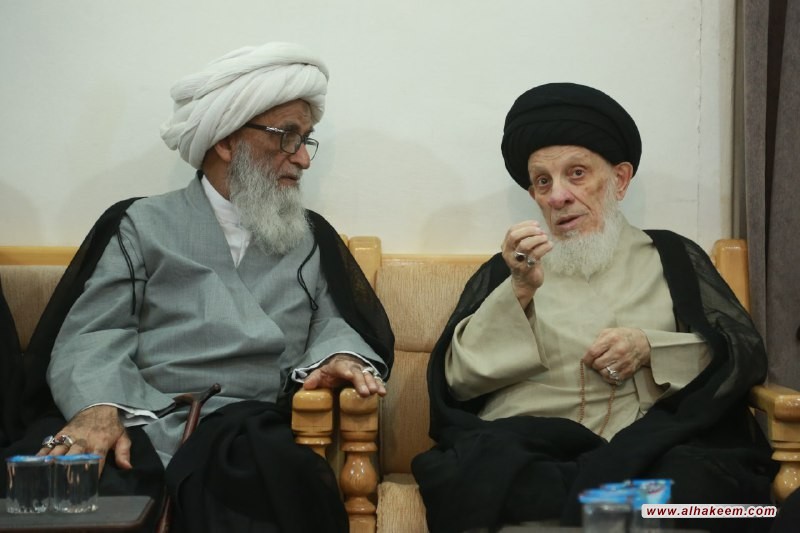
During the Holy month of Ramadhan and its spiritual atmosphere, His Eminence, Grand Ayatollah al-Hakeem, receives His Eminence, Grand Ayatollah Shaikh Basheer al-Najafi, on Thursday night the 4th of the holy month.


During the Holy month of Ramadhan and its spiritual atmosphere, His Eminence, Grand Ayatollah al-Hakeem, receives His Eminence, Grand Ayatollah Shaikh Basheer al-Najafi, on Thursday night the 4th of the holy month.